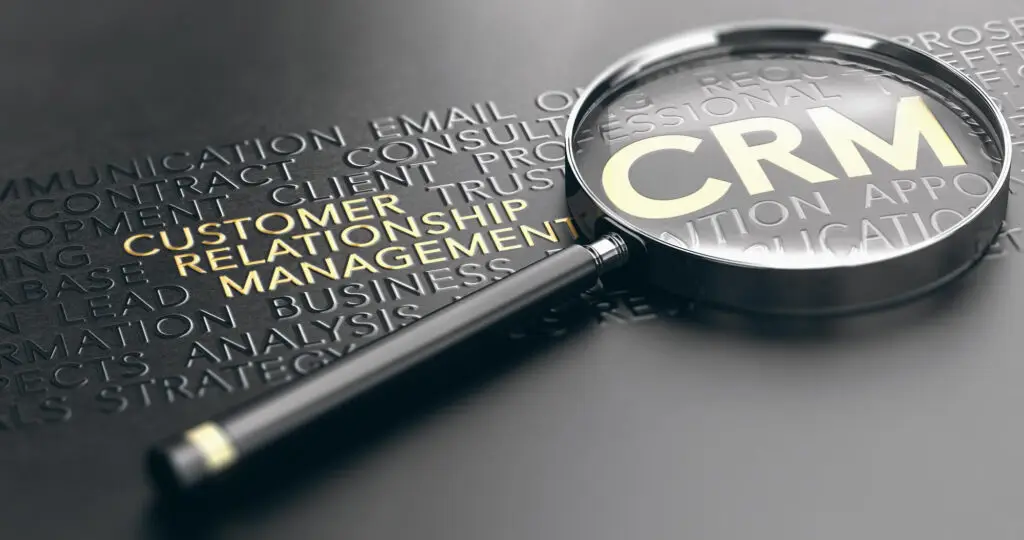Consulting entails dynamic connections that need to be carefully nurtured. Value is indicated by a well-cultivated CRM strategy that promotes customer relationships and efficient processes. This article looks into basic aspects, best practices and key technologies that can increase expertise. Its advice gives you the know-how to confidently navigate the customer-alignment landscape, whether you’re streamlining processes or breaking new ground.
Definition and Purpose of CRM for Consultants:
CRM is essential to consultants because it allows them to monitor and assess customer engagements over the course of a relationship. It’s more than just a trend; in consulting practices, it’s an important tool for building and maintaining great client relationships. Using CRM, consultants may better reach and serve more clients by combining client data, streamlining communication and analyzing present as well as future demands to create solutions that fit changing conditions. But to truly leverage CRM consultants need to go beyond a “one-size-fits-all” strategy. One method is to create customized strategies that are tailored to different client profiles to help maintain stakeholder commitment.
Importance of CRM in the Consulting Industry:
CRM is a vital tool for consultants in the competitive, fast-paced consulting industry. It enables customer attention by keeping track of their preferences, interactions and comments. This kind of tracking frequently yields tailored solutions that increase value and foster loyalty. CRM also enhances collaboration, provides a clear picture of the sales process, supports decisions based on data and ensures growth as well as scalability. Finally, it helps consultants set themselves apart, achieve sustainable growth and thrive in an ever-changing industrial landscape. CRM simultaneously allows anticipating customer demands, increases brand loyalty and streamlines processes—all of which open up new business options as well as clientele. Consultants use its many features to build long-lasting connections by giving each client individualized attention and timely replies that are specific to their goals.
Looking for CRM Consultants? Give Us a Call at (877) 846-7477 or Submit a Request Form Now
Understanding CRM for Consultants
Definition and Key Concepts of CRM:
Client Relationship Management, commonly referred to as CRM, provides organizations with a strategic approach for interacting with both current and potential customers. By compiling and analyzing customer information, businesses are equipped to strengthen bonds, boost satisfaction levels and increase sales volumes. Core facets of a CRM initiative include consolidating data, overseeing correspondence, tracking sales momentum and categorizing customers. Upon implementing specialized CRM technologies and tools, companies can optimize processes, personalize engagements as well as ultimately increase profits. Moreover, CRM enables firms to diversify their tactics for connecting with clients by offering varied experiences-from brief exchanges-to in depth discussions. By gaining deeper insights into customer preferences, businesses employing CRM build agility into their operations and heighten relevance on an individual level.
How CRM applies for Consultants and Other Industries:
CRM systems for consultants require distinctive features compared to other industries due to consultants focusing heavily on nurturing client bonds through their work. Consultants regularly operate within a project-based environment where client engagements are temporary yet diverse in nature. Accordingly, CRM solutions for consultants emphasize the need for flexibility, promptness and customization. Consultants must customize CRM tools to satisfy each client project’s unique demands, with the goal of providing importance, providing exceptional assistance and building long-lasting relationships. Consultants commonly adapt to changing client needs by tailoring communication and documentation preferences to optimize results in addition to building lasting relationships.
Common Challenges Faced by Consultants in Managing Client Relationships:
Although consulting offers a number of valuable benefits through efficient client relationship management, practitioners nonetheless encounter difficulties. Ensuring coordinated transactions across several projects and channels is the first challenge. Maintaining a balance between various encounters is crucial for preventing any basic conversation from being unnoticed. Moreso, consultants frequently struggle to accurately predict the demands and preferences of their customers, which leads to misalignment and sometimes discontent.
Furthermore, consultants face challenges when integrating CRM systems with current operations and procedures, which can result in inefficiencies including separated data. To overcome these, consultants need to use a combination of strong CRM tools, skillful communication strategies and a deep understanding of the personalities of their clients.
Benefits of Using CRM for Consultants
- Improved Client Management and Communication:
CRM systems simplify client management and communication for consultants by consolidating data and enabling efficient monitoring of interactions. Consultants are able to maintain structure, responsiveness, as well as proactivity, nurturing clear communication and building trust with clients throughout the entire engagement procedure. Through leveraging CRM, consultants strengthen client relationships, boost satisfaction and cultivate loyalty.
- Enhanced Organization and Efficiency in Project Management:
CRM platforms provide consultants with a centralized stage for project administration and coordination. Equipped with features such as task delegation, CRM promotes collaboration, decreases delays and optimizes productivity. Consultants can productively track project development, pinpoint potential barriers while preemptively addressing challenges to ensure successful project completion.
- Access to Valuable Insights and Analytics for Better Decision-Making:
CRM technology provide advisors a wealth of knowledge on company performance measures, changing industry trends and client preferences. Advisors may better manage funds, make evidence-based choices and identify opportunities for growth by conducting surveys on client interactions or activities. These systems enable consultancies to project income, tailor engagements to meet the unique needs of each client and encourage business growth with educated advice.
- Strengthened Client Retention and Acquisition:
CRM plays a pivotal role in both holding current clients and attracting new patrons. Consultancies can leverage CRM data to personalize communications with clients, identify chances to upsell additional services and surpass customer expectations. By cultivating leads and optimizing the sales pipeline, advisors boost new client acquisition and income growth. Such technologies allow consultancies to strengthen client relationships, enhance satisfaction and position themselves for long-term achievement in the consultative sphere.
Key Features of CRM Software for Consultants
Client Contact Management
CRM systems give consultants a more efficient way to handle client contacts by providing a central location to store customer information, engagements, and preferences. Consultants have easy access to customer profiles, are able to revisit previous correspondence, and may adjust engagements, all of which build closer relationships and increase client satisfaction.
Project Tracking and Task Management
CRM solutions offer comprehensive job management and project tracking features that let consultants assign work, set due dates and monitor progress in real time. Consultants can ensure project success, reduce delays and exceed client expectations with a clear as well as comprehensive view of project milestones and schedules. The intricate nature of client relationships and the difficulty of meeting a variety of demands across a range of projects necessitates rapid thinking and fluid cooperation. Technology solutions can streamline some procedures but understanding and personal connection are the keys to providing the best possible customer service.
Communication Tools (Email Integration, Messaging, etc.
CRM systems seamlessly integrate various communication channels, empowering consultants to interact with clients through their preferred methods. Consultants can exchange emails, messages, and conduct calls directly from the CRM platform. They can monitor correspondence history and engage clients in a timely manner. This ensures efficient dialogue throughout a project’s duration.
Document Management and Sharing
CRM platforms offer robust documentation handling and distribution capabilities. Consultants can securely store, organize, and distribute project files. They can collaborate simultaneously with colleagues and customers, accessing documents from any location. Version control maintains the most updated information and assets, so all parties have the latest resources and details.
Reporting and Analytics Capabilities
CRM systems provide strong reporting and analysis features allowing consultants to gain valuable perspectives into client behaviors, project performance metrics and other key business indicators. Sophisticated reports can be effortlessly generated from the CRM, assessing important KPIs and identifying positive or concerning trends that may require attention. By deriving actionable insights from the collected data, consultants are empowered to make informed decisions driven by facts rather than guesses, helping drive business growth strategies forward.
Integration with Other Tools and Platforms
By integrating a CRM with other commonly used platforms, consultants can optimize workflows and increase productivity. Linking a CRM to project management, accounting, or marketing automation systems facilitates centralized data management, automated processes, and efficiency gains across departments. For example, project details and time entries might automatically sync between a CRM and project software. This consolidation of information extraction from silos eliminates redundant data entry and supports a holistic view of client relationships and service delivery.
Implementing CRM for Consultants: Best Practices
Assessing the Specific Needs and Goals of the Consultancy:
Before employing a CRM framework, advisors necessitate evaluating their explicit requirements and goals. By identifying pain points, customer expectations, and progress targets, advisors can tailor their CRM approach to manage explicit tests and optimize openings productively.
Selecting the Right CRM Software Based on Requirements and Budget:
It’s crucial to choose the appropriate CRM programming. Advisors should evaluate various CRM options based on features, extensibility, evaluation, and compatibility with existing frameworks. Advisors may select a CRM solution that meets their needs and provides the most value for their project by conducting thorough research and taking into account variables like budgetary restrictions as well as potential extension ideas. The consultant must also take into account how staff members will adjust to the new technology. A change management plan should consider the different technical skill levels of team members. Adoption and ensuring that the system can reach its full potential depend heavily on user assistance and training.
Customizing the CRM System to Suit the Consultancy’s Workflow:
While selecting the appropriate CRM platform is a pivotal initial step, customizing it to perfectly sync with internal systems and workstreams is equally vital for consultants. Tailoring settings, designing personalized fields, apart from crafting workflows customized for unique operational needs allows consultants to streamline processes, encourage user buy-in and leverage CRM’s full benefits.
Training Staff on How to Effectively Use the CRM Software:
However, proper staff training is also critical to CRM success. Consultants must provide intensive instructional sessions, online tutorials, and supportive resources to help all employees develop confidence and proficiency with the software’s full features. Through investing in comprehensive training, consultants can ensure employees skillfully navigate the CRM platform, thereby optimizing adoption and boosting productivity across the organization.
Establishing Protocols for Data Management and Privacy:
Data security is paramount in any CRM rollout. Consultants must establish rigid protocols for information handling from the initial data input stage all the way through to access restrictions. Comprehensive procedures for capturing, retaining, and allowing admission to customer particulars are a necessity. Beyond fulfilling data protection laws, implementers should place strong safeguards on sensitive details and reinforce integrity through each phase to cultivate client confidence. By prioritizing accuracy and confidentiality from the beginning, advisors can lower the prospects of breaches while still facilitating customized solutions to meet various needs.
Case Studies: Real-Life Examples of CRM Success for Consultants
Case Study 1: How Consultant X Boosted Client Engagement with CRM:
Consultant X, a specialized marketing firm, strives to enhance customer engagement through a cohesive relationship management system. By centralizing various client touchpoints and data within a unified digital platform, Consultant X cultivates deeper insight into client tastes and evolving needs over time. Leveraging metrics and patterns from the CRM, they tailor distinct solutions to convert browsers into buyers while preserving customer retention through quality interactions. Whether responding rapidly to inquiries or crafting individualized strategies, Consultant X consistently exceeds expectations and fortifies loyalty among their customer base, validating their reputation as a trusted ally for the long term.
Case Study 2: Consultant Y’s Journey to Streamlining Operations with CRM:
CRM software was employed by Consultant Y to increase productivity and optimize business operations. They utilized resource allocation to automate duplicate tasks by integrating their CRM system with current operations. Project management was now conducted from a single, customizable dashboard. This created a positive situation where there was no previous work cohesiveness between different teams under the same management. After implementing the new CRM system, they began to collaborate across departments opening new avenues of communication.
Case Study 3: Consultant Z’s Experience in Leveraging CRM for Business Growth:
Consultant Z, a financial advisory firm, utilized CRM technology to stimulate sustainable business development and maximize client value. By leveraging CRM analytics, the firm identified previously undiscovered services and cross-selling to existing customers. Through customized engagement with clients and personalized proposals tailored to individual needs, Consultant Z significantly boosted satisfaction and loyalty, leading to client retention and unsolicited referrals from happy customers. By combining CRM with other digital technologies, Consultant Z was able to streamline operations, encourage teamwork, and eventually achieve consistent organization development to satisfy changing customer needs along with market conditions.
Overcoming Common Challenges in CRM Implementation for Consultants
The process of implementing CRM might appear daunting due to many challenges such as resistance to changing current procedures and transferring data. In the guidance that follows, we will go deeply into strategies for getting over these obstacles and effectively releasing CRM’s potential. Through addressing common obstacles head-on, advisers may streamline processes, increase client engagement, and advance businesses toward success. Migration and adapting to change may be frustrating, but by concentrating first on training and integrating stakeholders, CRM can maximize its potential to improve client connections and streamline interfaces.
Resistance to Change Within the Consultancy:
While change frequently causes anxiety, advancement necessitates flexibility. Updates to customer relations software raise questions naturally, but they may also bring possibilities if done well. The goal of explaining is to make things easier, respond faster, and help clients more effectively. It also clears the way. Small victories create momentum that helps everyone take ever-greater steps toward common goals.
Data Migration and Integration Issues:
- Data migration can pose numerous challenges in terms of complexity, time investment, and compatibility when implementing new CRM systems. Ensuring smooth integration with current systems is crucial.
- A detailed plan must be created, mapping out all data fields and conducting comprehensive testing to minimize risks and reduce potential issues. The transition requires dedicated resources with specialized knowledge to address any problems promptly.
- Verifying that migrated data is complete while also keeping current systems functioning optimally demands significant effort. Unforeseen difficulties could disrupt daily operations if not handled rapidly. Thorough preparation and vigilant oversight during the migration are necessary to facilitating a seamless transition.
- The complexity of migrating data increases proportionally to the number of legacy systems. Significant coordination is needed to synchronize changes and maintain usability across all impacted applications. Close monitoring is key to resolve unexpected complications before they escalate.
Ensuring User Adoption and Engagement:
- Gaining leadership support and user enthusiasm were essential for obtaining full staff participation in the new CRM system.
- Tailored training and readily available assistance helped empower employees to master the new tools and embrace customized workflows.
- Streamlining the CRM to align with diverse preferences and existing processes proved vital for staff engagement.
- Soliciting continuous feedback and addressing concerns promptly fostered motivation by demonstrating responsiveness to user needs.
- Recognizing top performers for their achievements and contributions with rewards and praise further helped sustain morale during the initial challenging transition period.
Managing Security and Privacy Concerns:
- Emphasizing the critical need for protecting customer data privacy and enhancing security is imperative to build trust with clients as well as fulfill regulatory mandates.
- Implementing robust security protocols like encryption and access constraints is of utmost importance.
- Conducting frequent evaluations and risk appraisals is crucial to uncover and remedy vulnerabilities in a timely manner.
- Administering extensive security instruction for all personnel and strictly enforcing rigorous information management policies company-wide are vital steps.
- Partnering with reputable CRM vendors who make security a top priority and can substantiate adherence to compliance standards provides additional assurance and peace of mind.
Future Trends in CRM for Consultants
Integration of Artificial Intelligence and Machine Learning Capabilities:
- By 2025, analysts project that 40% of typical CRM tasks will leverage AI capabilities to enhance efficiency and effectiveness.
- The integrated powers of AI and ML are already transforming CRM through predictions of customer preferences, automated streamlining of common processes, and customized interactions that surpass expectations.
- Early adopters are realizing substantial benefits: Salesforce reported a 186% increase in productivity among representatives currently aided by AI tools, over half of whom now leverage such innovations.
Expansion of Mobile CRM Solutions:
- The rise of remote work and mobile advancements are fueling adoption of mobile CRM. Consultants can now access vital client details, collaborate remotely, and offer superior service from anywhere.
- Nucleus Research found mobile CRM may increase sales productivity up to 15%.
- Salesforce insight showed 80% of buyers see customer experience as significant as product offerings.
Greater Emphasis on Data-Driven Decision-Making:
- Data-driven decision making has become a core competency for consultancies seeking sustainable success. Leveraging customer insights extracted from detailed records held within CRM platforms, consultants can understand client needs on a deeper level and ensure services remain closely aligned with real-world realities. Recent research underlines the strategic importance of this approach, with analytics-led organizations exhibited sixfold profitability according to Forbes.
- Moreover, the State of the Connected Customer report from Salesforce reveals that an overwhelming majority of 84% believe customer experience is just as vital as products or services. Therefore, maintaining engaging relationships built upon relevant, personalized interactions demands extracting value from amassed user data. Through scrutinizing trends, preferences and outcomes, consultants interpret indicators to continuously refine approaches, address emerging pain points and foster the bonds critical to growth.
Evolution of CRM Platforms to Meet Changing Consultancy Needs:
- Integrated AI has been found to improve customer experience, as reported by 83% of firms polled by Deloitte.
- According to Gartner, global revenue from CRM software is expected to surpass $80 billion by 2025.
CRM systems provide adaptable features, comprehensive abilities, and expandability to accommodate changing market conditions, enabling consultancies to maintain their competitive edge by becoming innovators and offering unmatched advantages to customers.
Looking for Skilled CRM Consultants Near You? Contact The THOR Group
Skilled CRM consultants can be the key to unlocking new opportunities and driving growth. As experts in customer relationship management (CRM), these consultants optimize customer interactions and enhance business processes. If your company needs experienced CRM consultants, The THOR Group can provide professionals who drive success within your organization.
The THOR Group is a reliable partner for businesses aiming to stay competitive in customer-centric industries. These CRM consultants that we deliver are available for consulting, contracting, or direct hire basis. Contact us today to unlock the full potential of CRM expertise for your company’s success!
View Other CRM Professionals That We Provide
Staffing Made Effortless. Let the Experts Handle Your Hiring
Helping companies discover the perfect talent for their needs. Finding the right individuals to drive your success is what we excel at.





